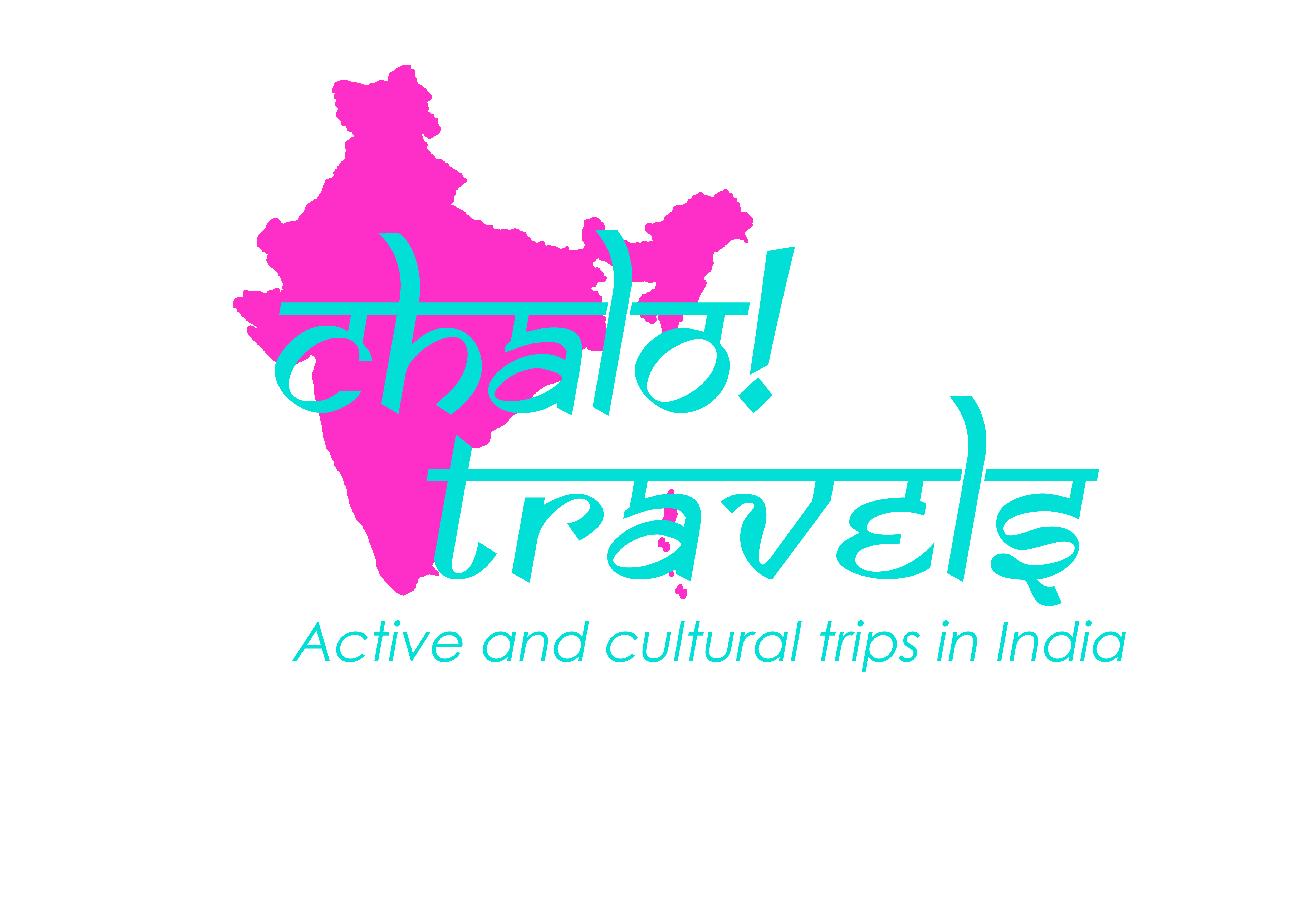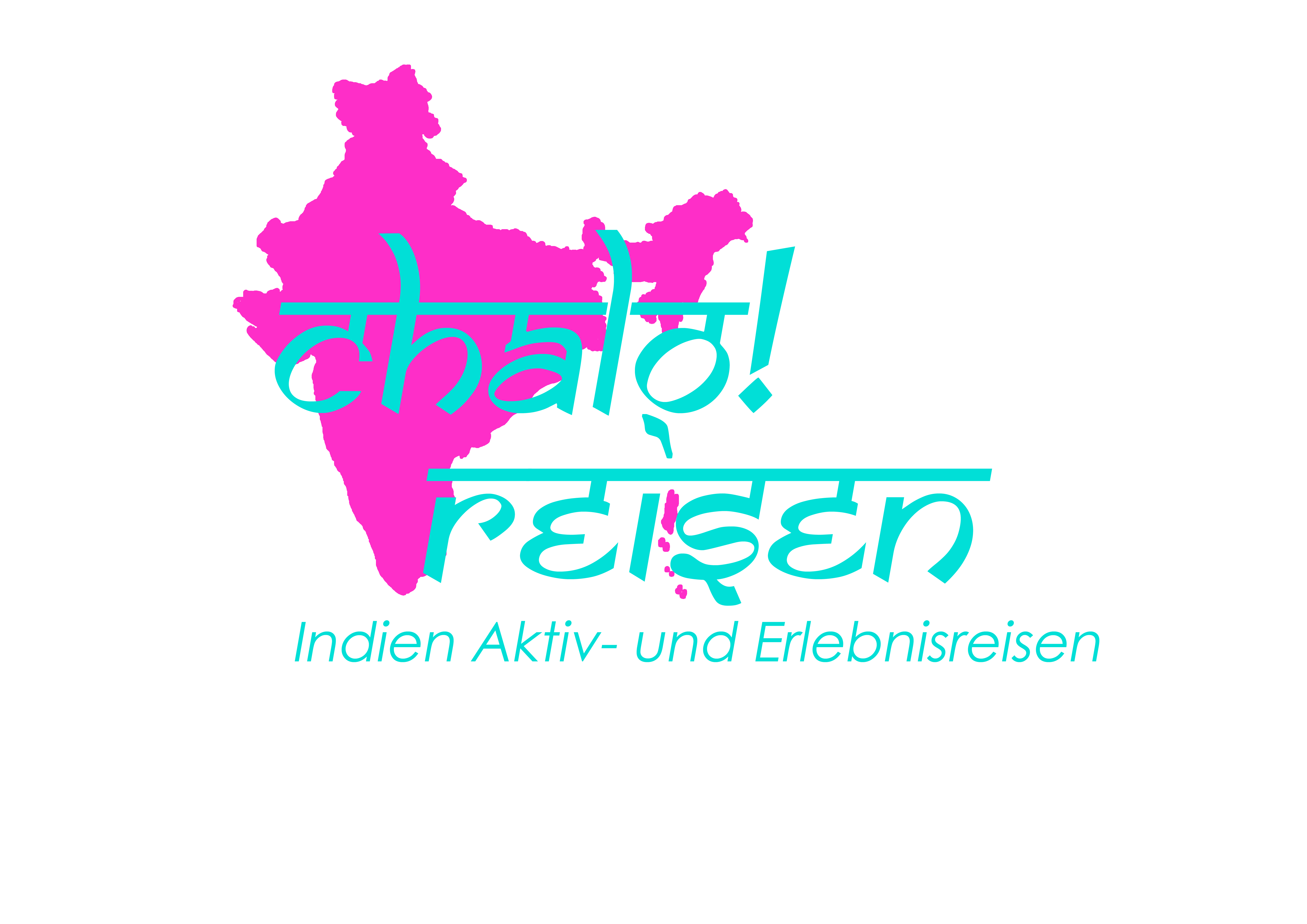- Sport & Abenteuer Reisen
- Klettern & Expeditionen
Overview
The Friendship Summit is a simple and not very technical summit. It is well suited to gain the first mountaineering experience. From the summit you have a wonderful view into the lonely Lahaul valley with its dry mountain desert landscape. The first days consist of gentle trekking along the Beas River, then we continue up to the snow-capped peak. We cross glaciers and it goes steep up.
During the expedition there will be small practice sessions for learning important mountaineering techniques as well as for handling climbing equipment.
The first expedition consisted of an International – Indian team, i.e. a “friendship team”, hence the name of the summit!
Read a report about our last adventure ” Friendship Peak.
Program
Day 1 Arrival in Delhi, check in to the hotel and in the afternoon onward travel to Manali (2050 m)
We pick you up from the airport and bring you to our hotel, after some rest and breakfast, we will get to know Delhi on a small exploration tour. In the afternoon we take the air-conditioned Volvo bus to Manali (overnight trip, 14 hours) (B/-/-)
Day 2 Arrival in Manali, check in at the hotel, Presentation of the team, purchases, control and distribution of equipment
After arriving in Manali, we get to know the whole team today and make final preparations for our adventure. In the evening we have dinner together with the whole team. Overnight stay at the hotel (B/-/D)
Day 3 Manali to Dundhi (2890 m) 1 hour by car, then on to Base camp (3291 m), 4 hours
First we go by jeep to Dhundi. From here our actual tour starts. On a small path we go up to our base camp. We cross small streams and camps on the moraine of the glacier. Overnight in a tent (B/L/D)
Day 4 Base camp to Camp 1 (4250 m) 6 hours
Another day of trekking high at 4250 m. From our camp we have a great view of the Friendship summit and also of all the surrounding mountains. The Hanuman Tibba, the highest mountain in the Dhauladhar mountain range, rises steeply above us! Overnight in a tent (B/L/D)
Day 5 Rest day, equipment control, short theory and practice sessions for mountaineering
Today we use the day to get used to the height. For the mountaineering newcomers we will give an introduction to the use of crampons, climbing harness and ice axe. In addition, we will take an acclimatization walk in the surrounding area. Overnight in a tent (B/L/D)
Day 6 Camp 1 to the summit camp (4890 m) 4 hours
A short but exhausting day. Today we will wear our snowshoes for the first time and it goes higher and higher.We will be able to move to our next camp very slowly. Tonight we will camp in the snow! Overnight in a tent (B/L/D)
Day 7 summit camp to the summit (5353 m) back to Camp 1
The day of the summit ascent! Early in the morning at around 4 o’clock we go up to the summit with headlight. Depending on the situation and skills of the participants, we will attach ropes. It is necessary to bypass one or the other crevasse and then finally we will stand on the fascinating summit of friendship mountain. Later we will descend to Camp 1 to rest here. Overnight in a tent (B/L/D)
Day 8 Camp 1 to Dundhi 5 hours, drive back to Manali
A simple descent leads us down to the starting point of the expedition. Our Jeep takes us back to Manali and we celebrate our success with a dinner together. Overnight stay at the hotel (B/L/D)
Day 9 Extra Day
In case of bad weather or for a longer acclimatization phase, we plan an additional day. If this is not needed, you will be accommodated in the hotel in Manali. Overnight in a tent (B/L/D)
Day 10 Departure Manali
In the afternoon we take the bus back to Delhi (Overnight, 14 hours) (B/-/-)
Day 11 Arrival Delhi in the morning, transfer to the airport, departure to home country (B/-/-)
First you will be taken to the hotel and from there you will later go to the airport.
Services
- Trained Mountain Guide
- Cook and helper
- Load horses or carriers to Base Camp
- Accommodation in 2-man tents
- Kitchen tent at Base Camp
- Full catering
- complete transport
- complete expedition equipment
- 2 x Delhi Hotel with Breakfast
- 2 x Manali Hotel with breakfast
- Airport transfer
- Delhi-Manali/Manali- Delhi Volvo Bus Air-conditioned
International flightVisaunmentioned mealsTipIMF Permit
Highlights
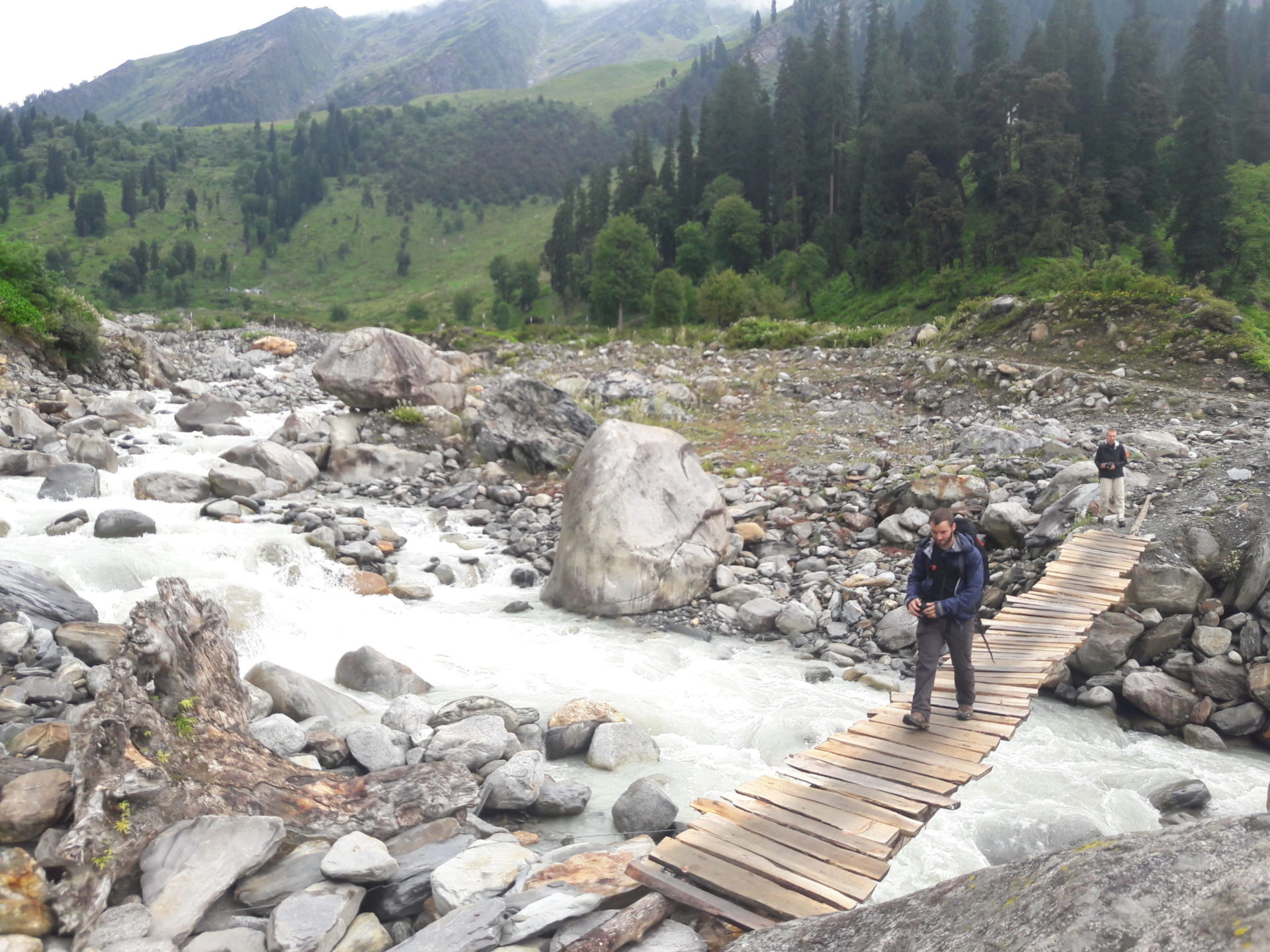
Friendship Peak Expedition 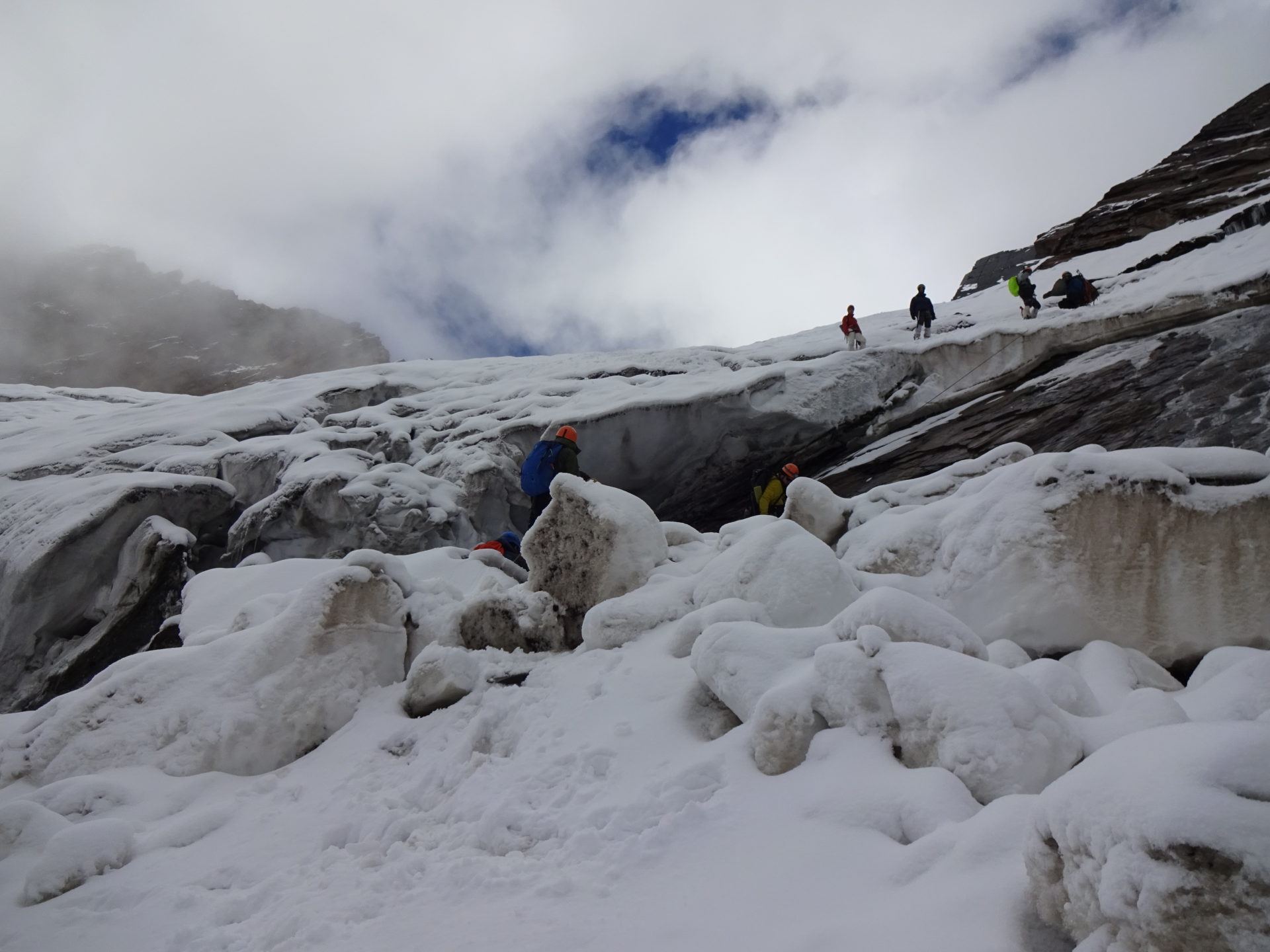
Friendship Peak Expedition 
Friendship Peak Expedition 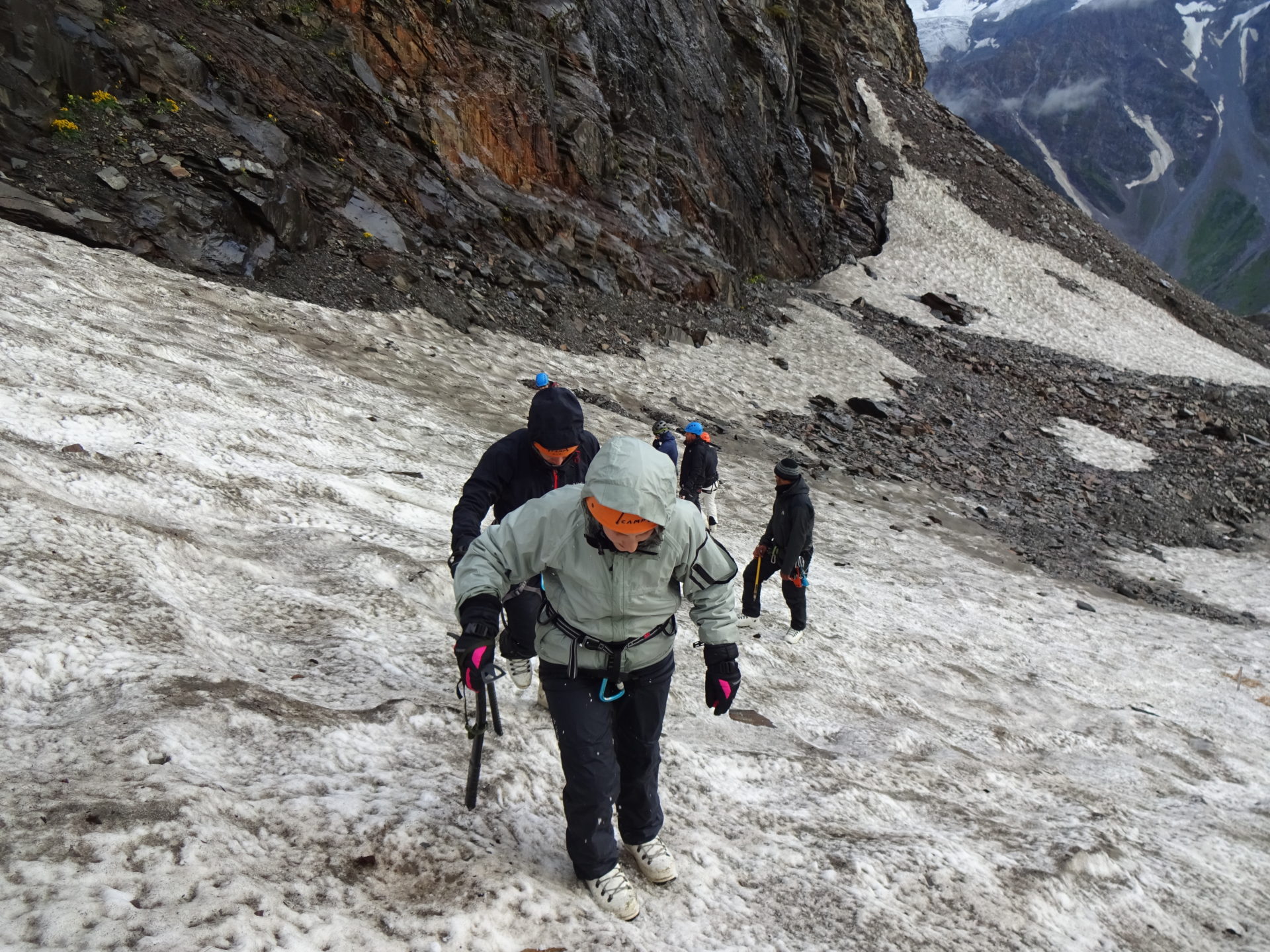
Friendship Peak Expedition 
Friendship Peak Expedition 
Friendship Peak Expedition 
Friendship Peak Expedition 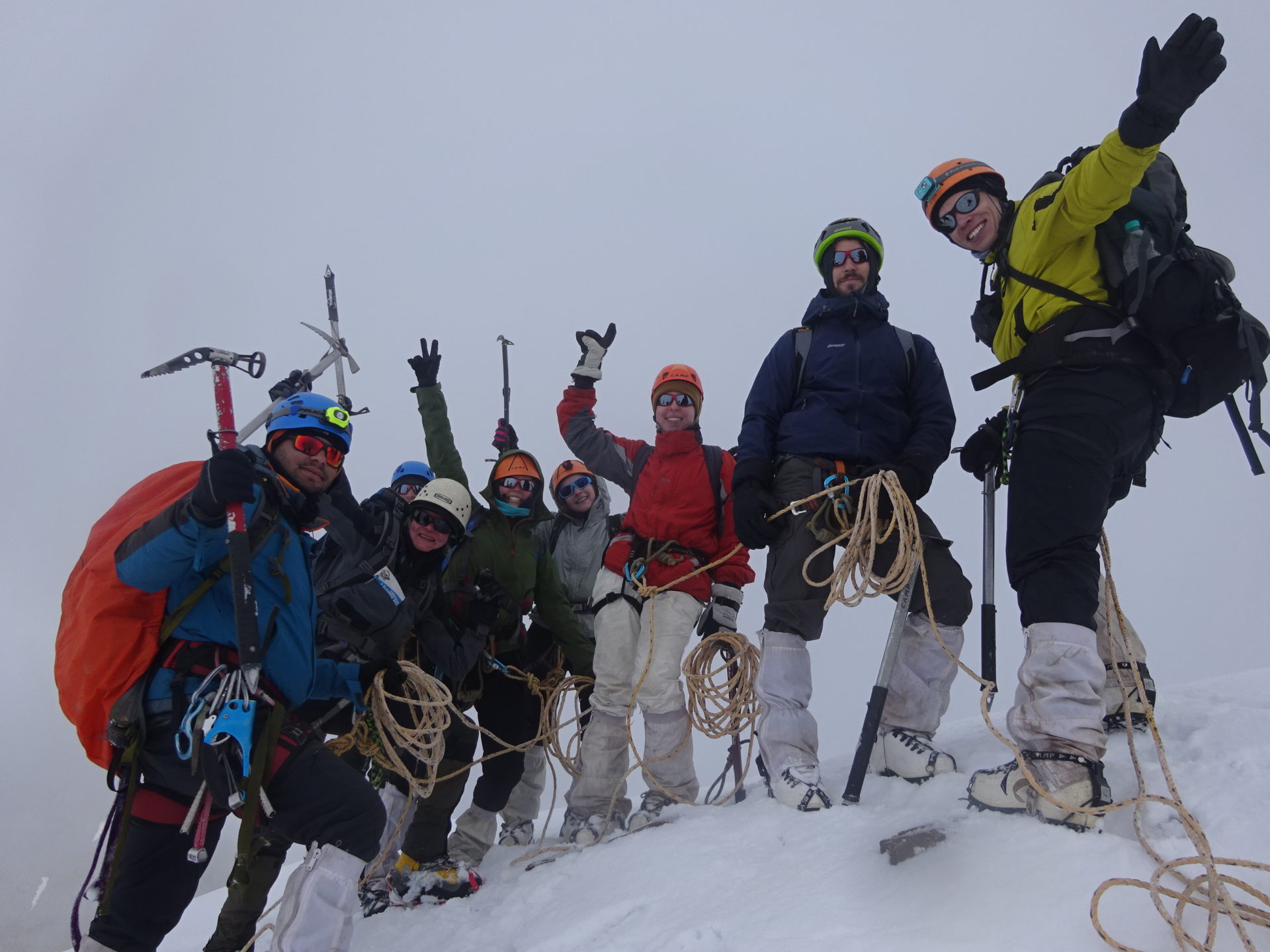
Friendship Peak Expedition 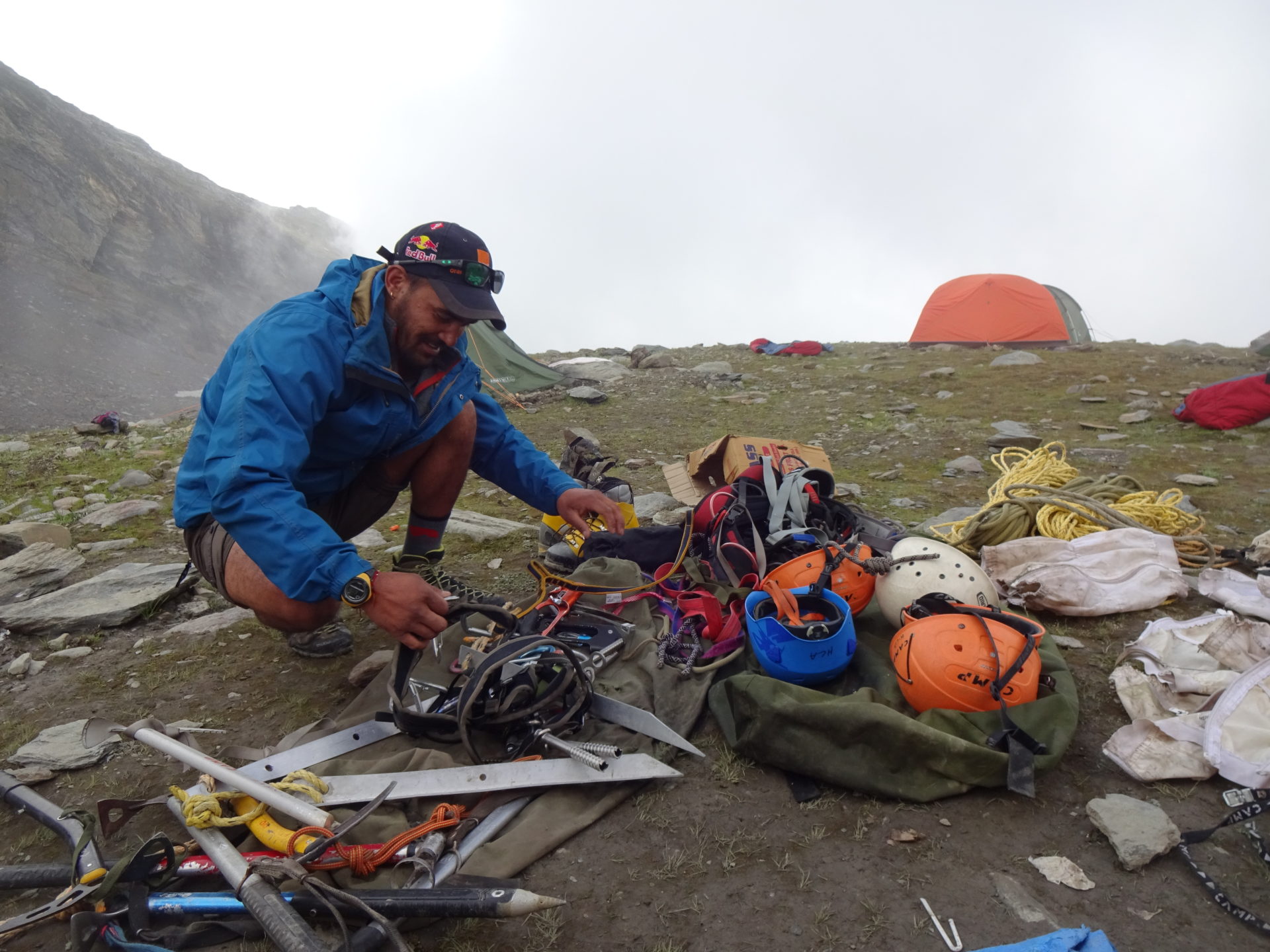
Equipment 
Hanuman Tibba in the background 
Good Morning 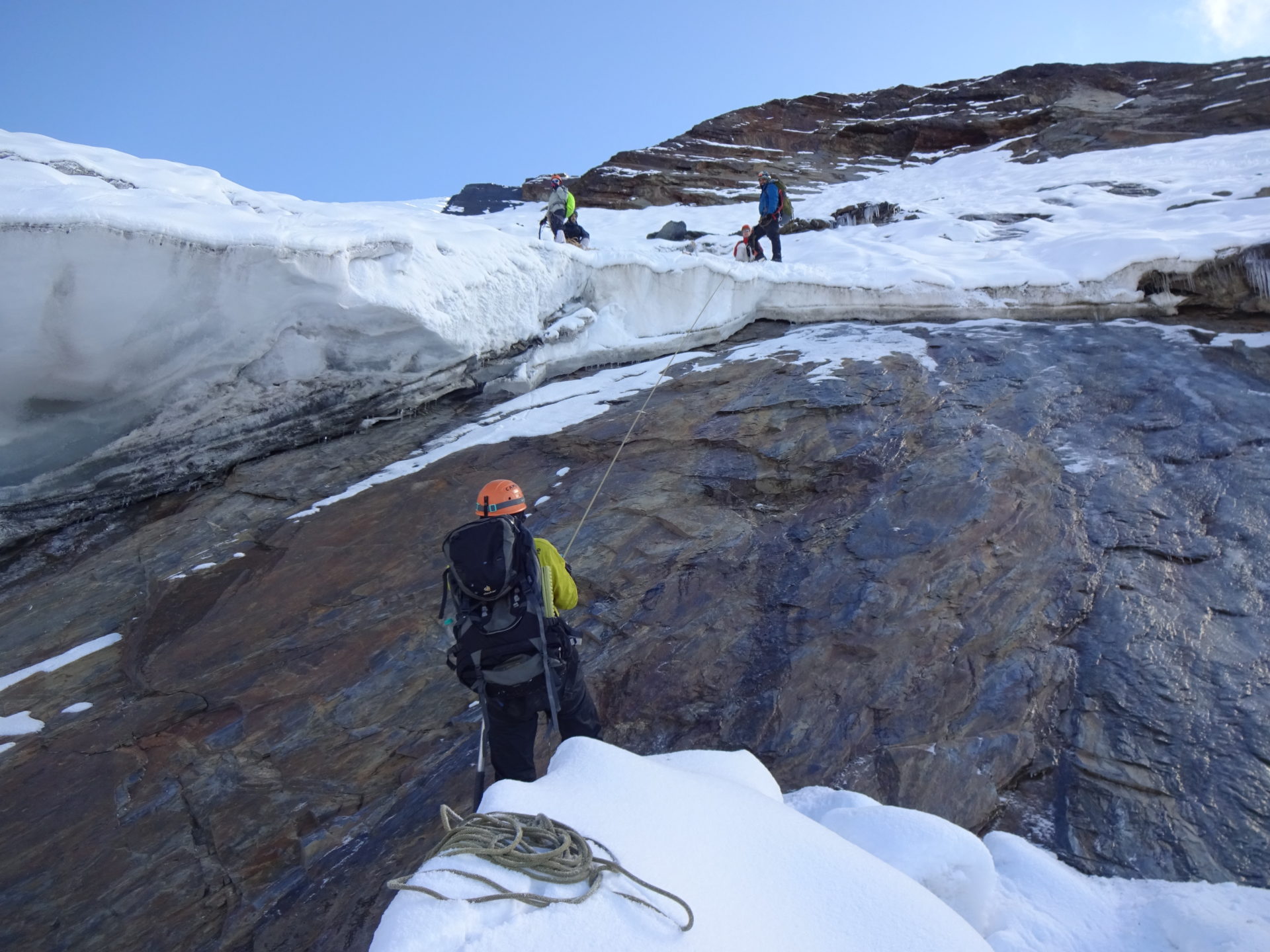
over rock 
Friendship Peak Expedition 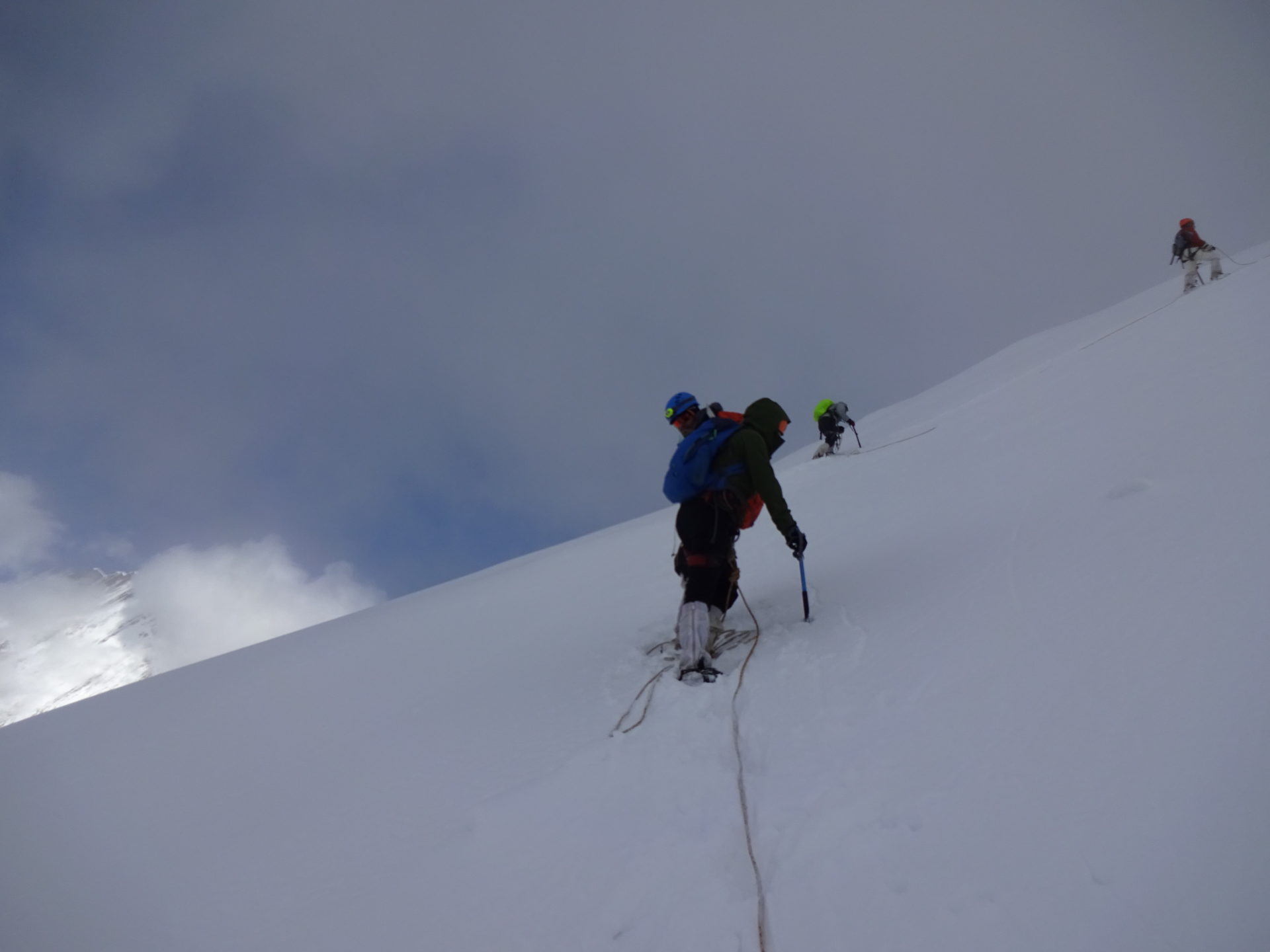
Friendship Peak Expedition 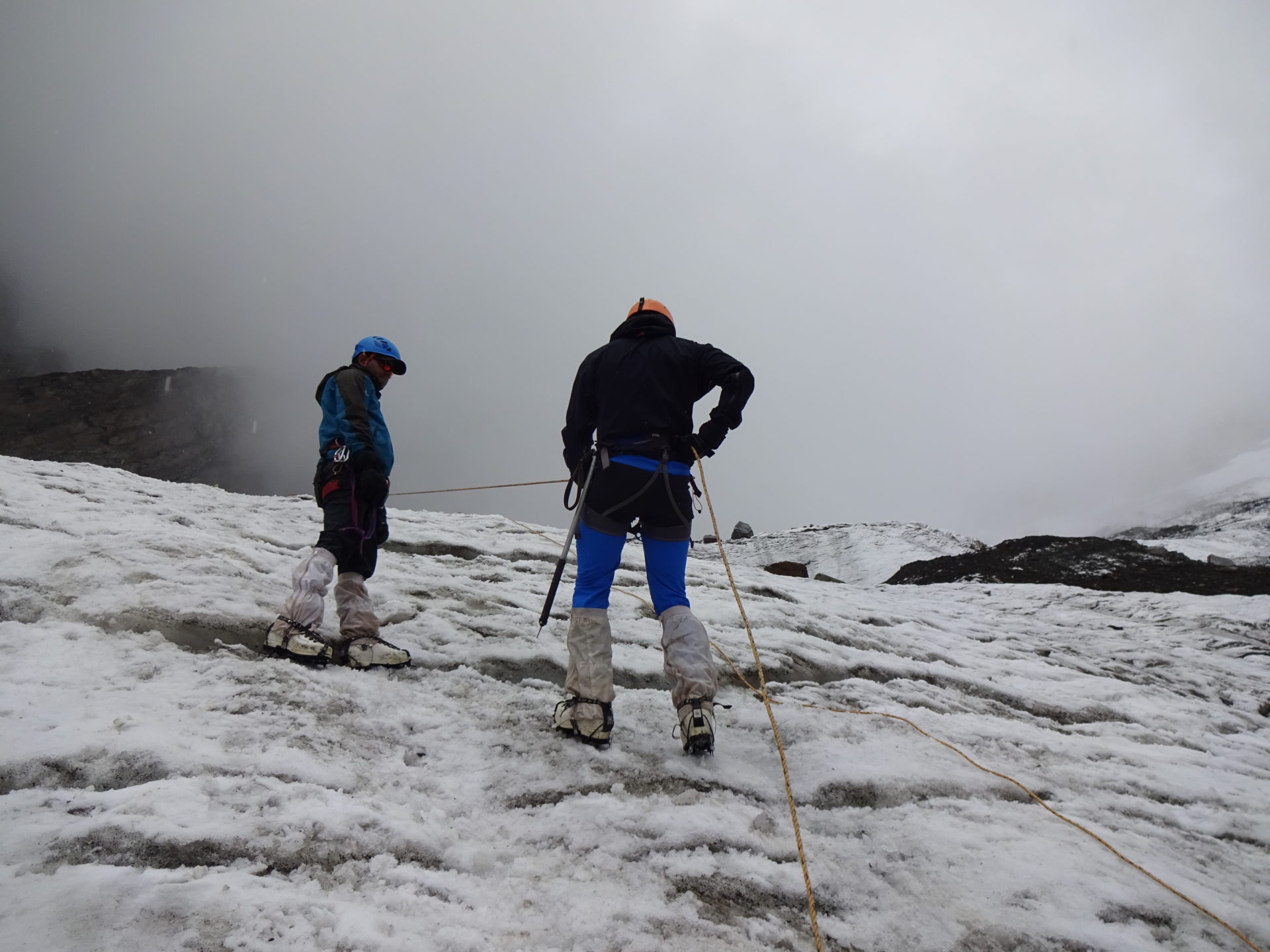
rappelling down 
exercises 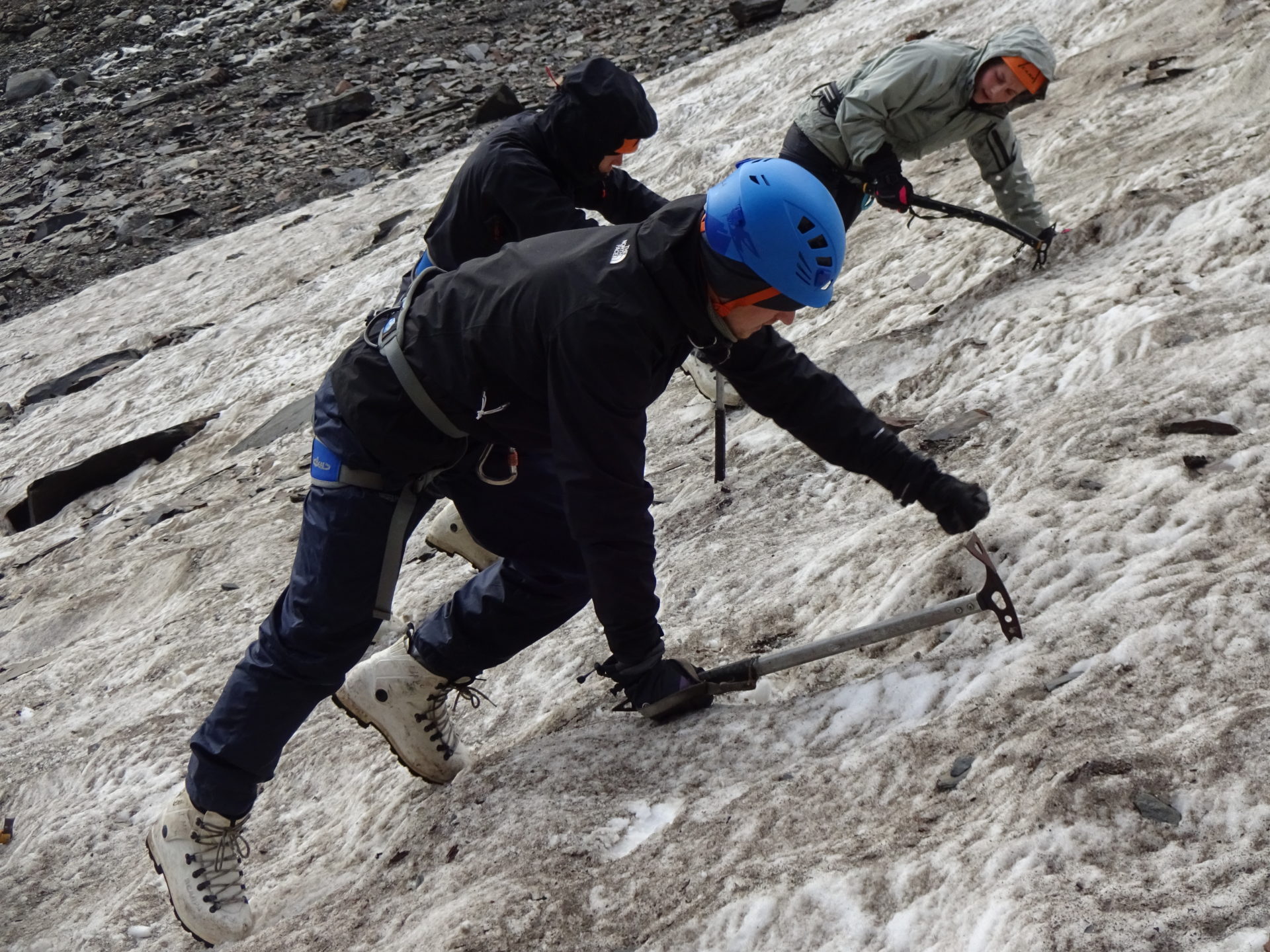
exercises 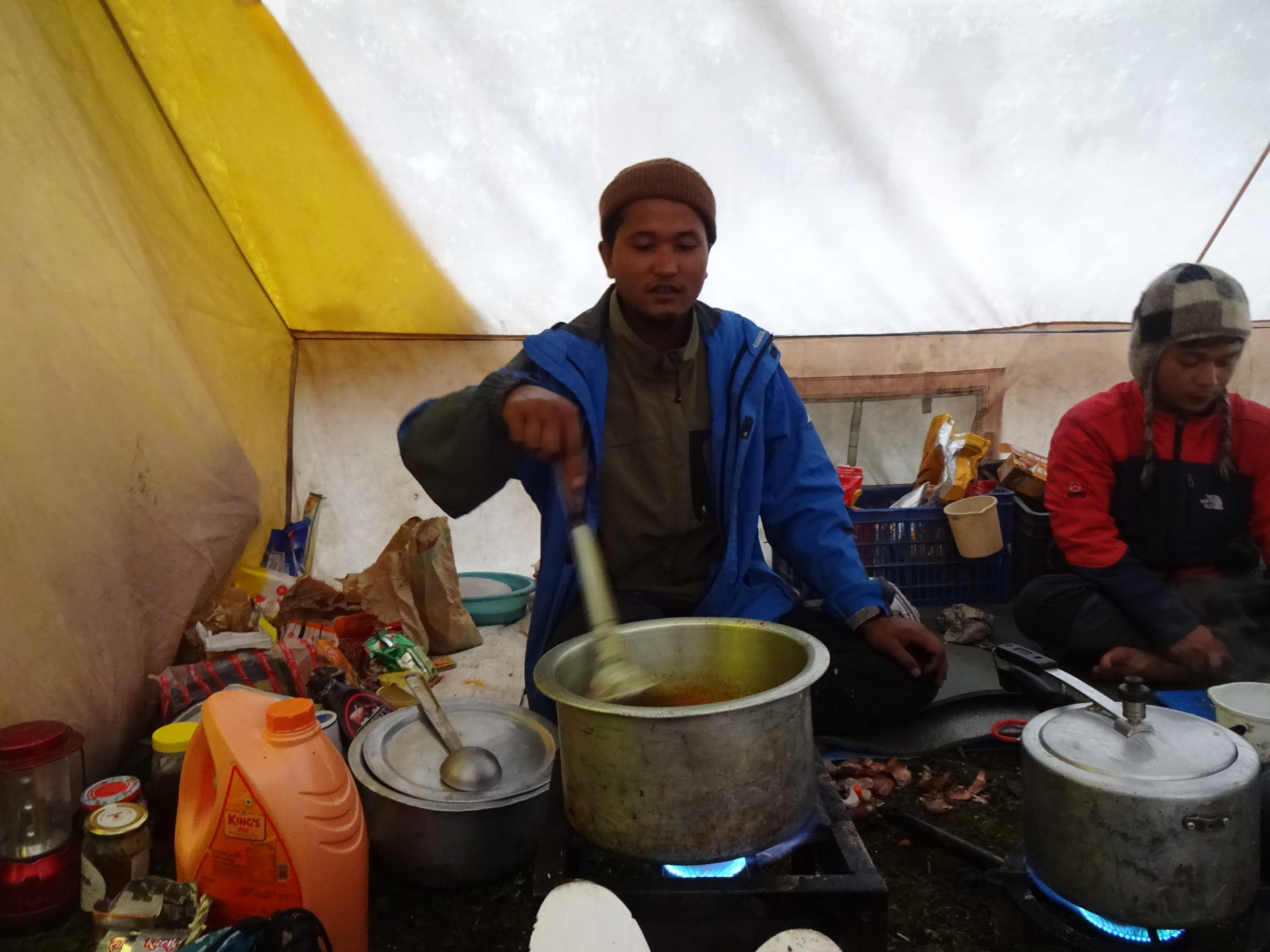
Kitchen tent 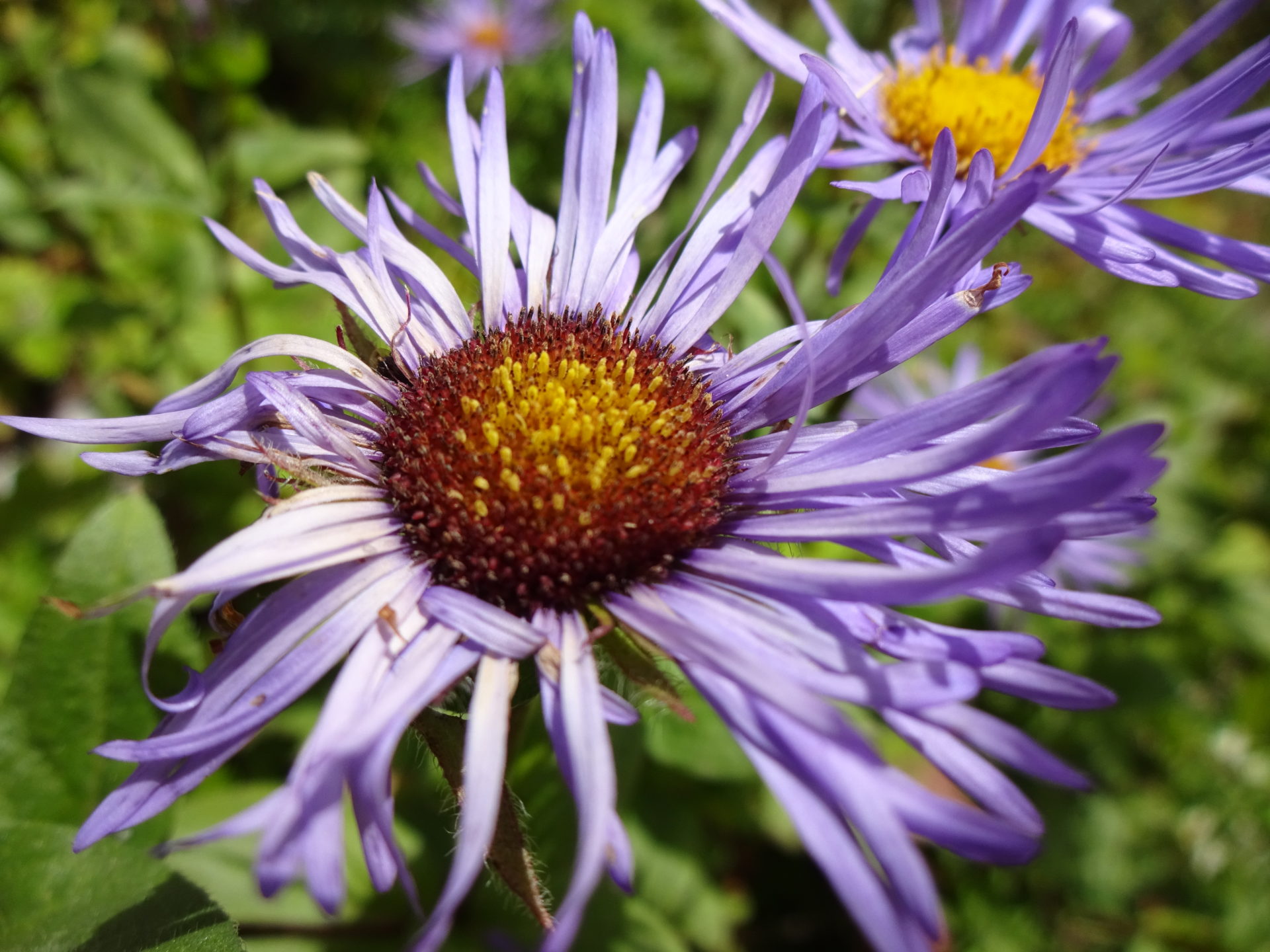
Friendship Peak Expedition 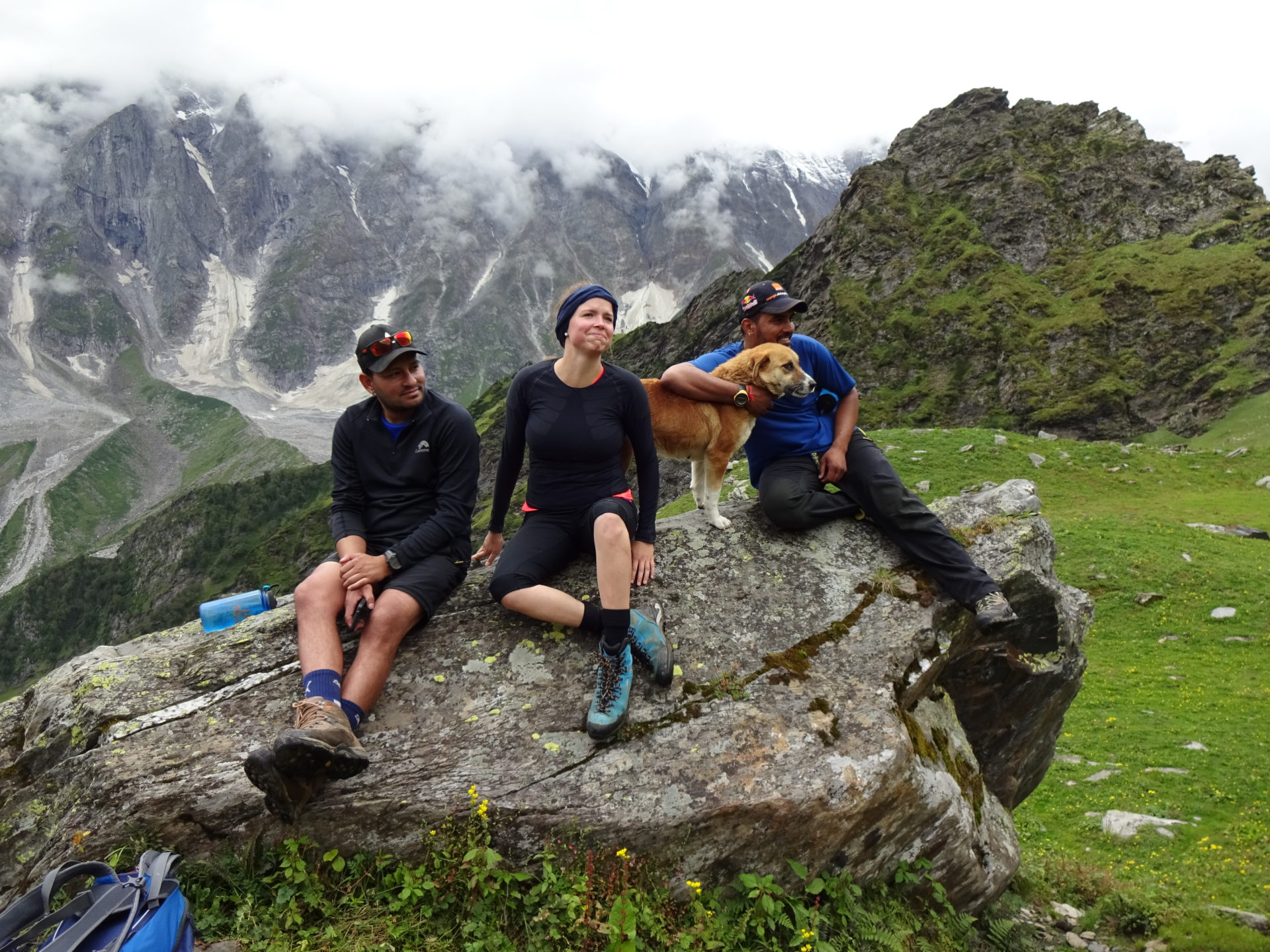
Friendship Peak Expedition 
peak 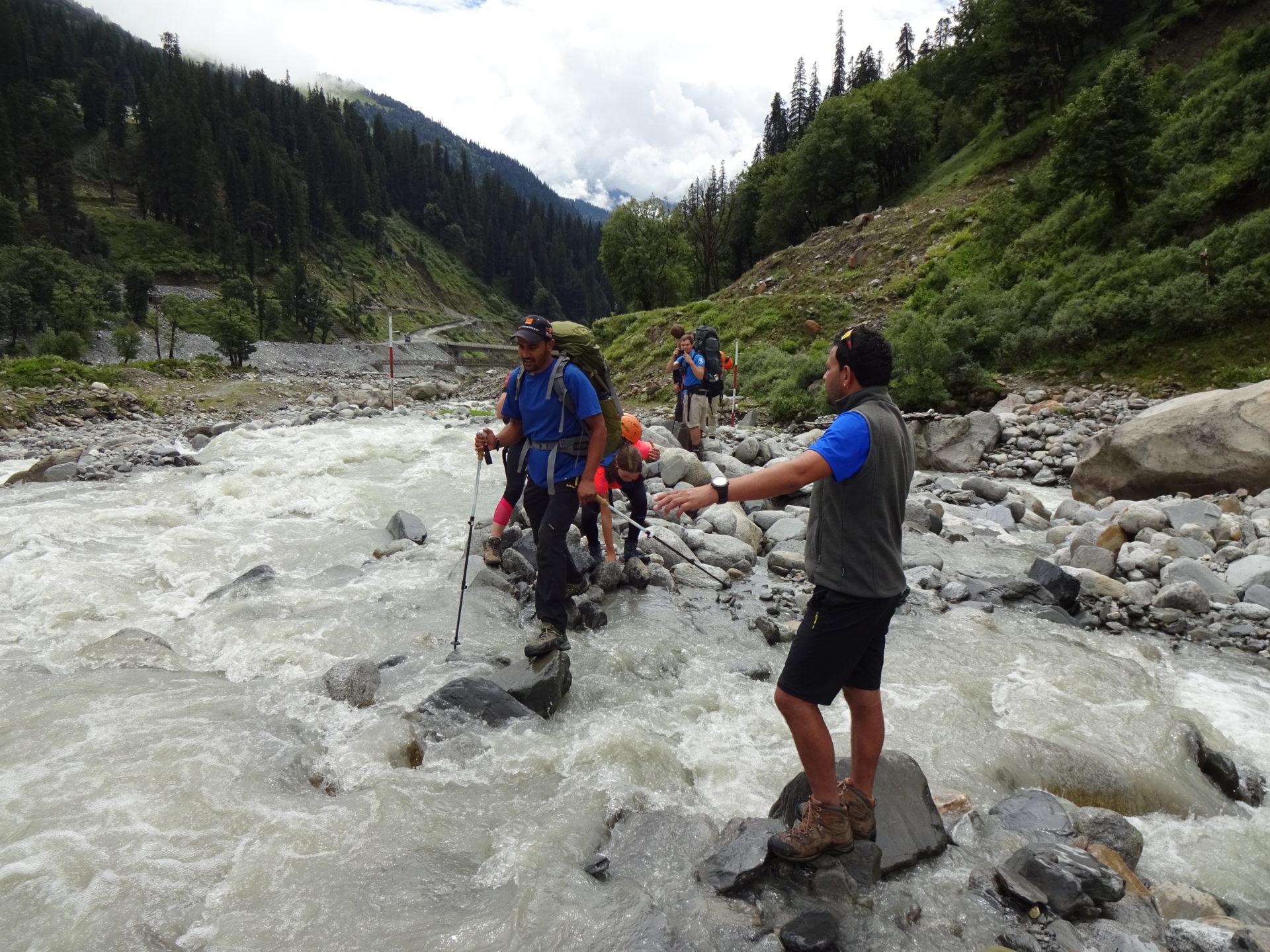
Friendship Peak Expedition 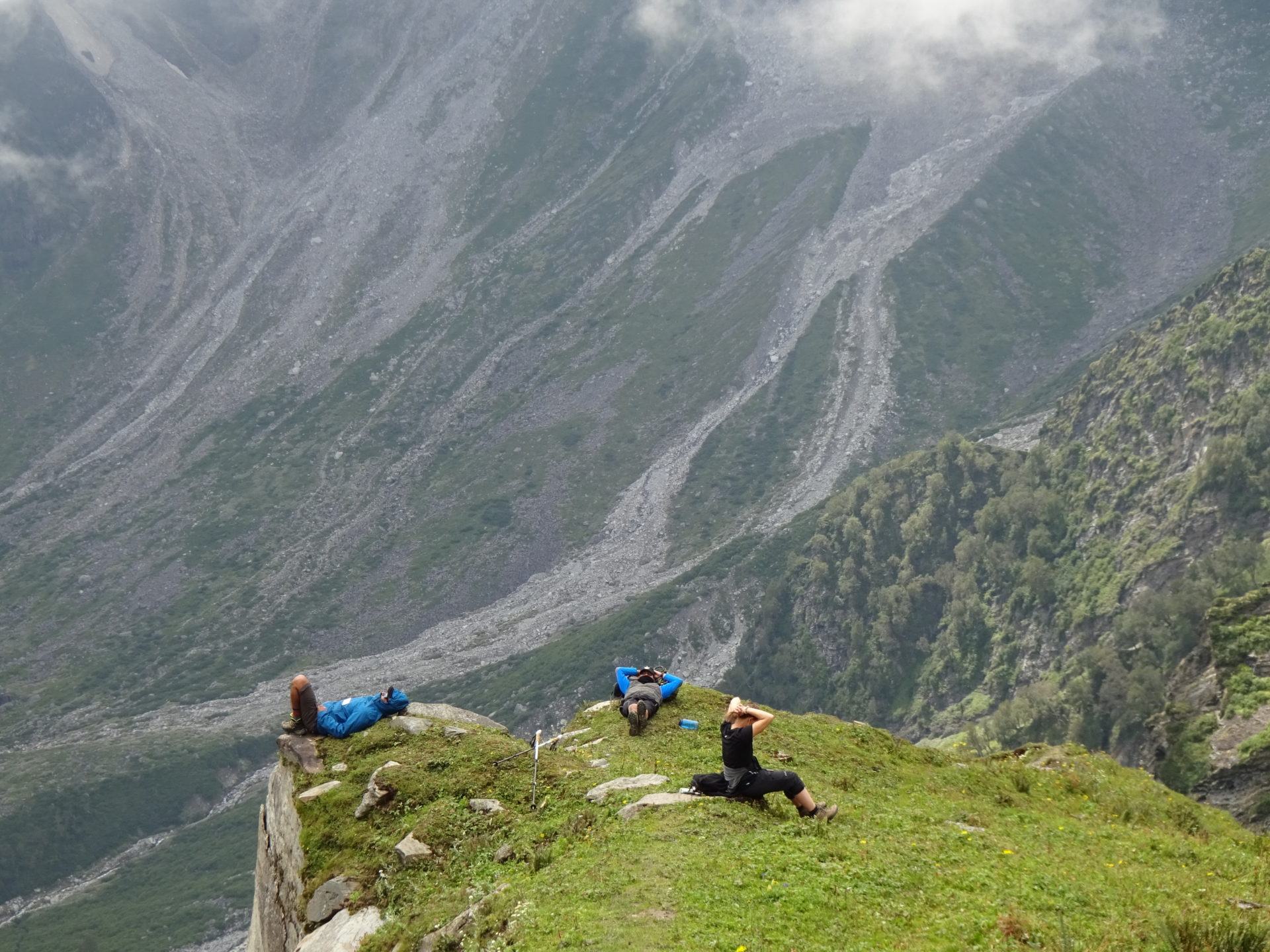
Friendship Peak Expedition 
Friendship Peak Expedition 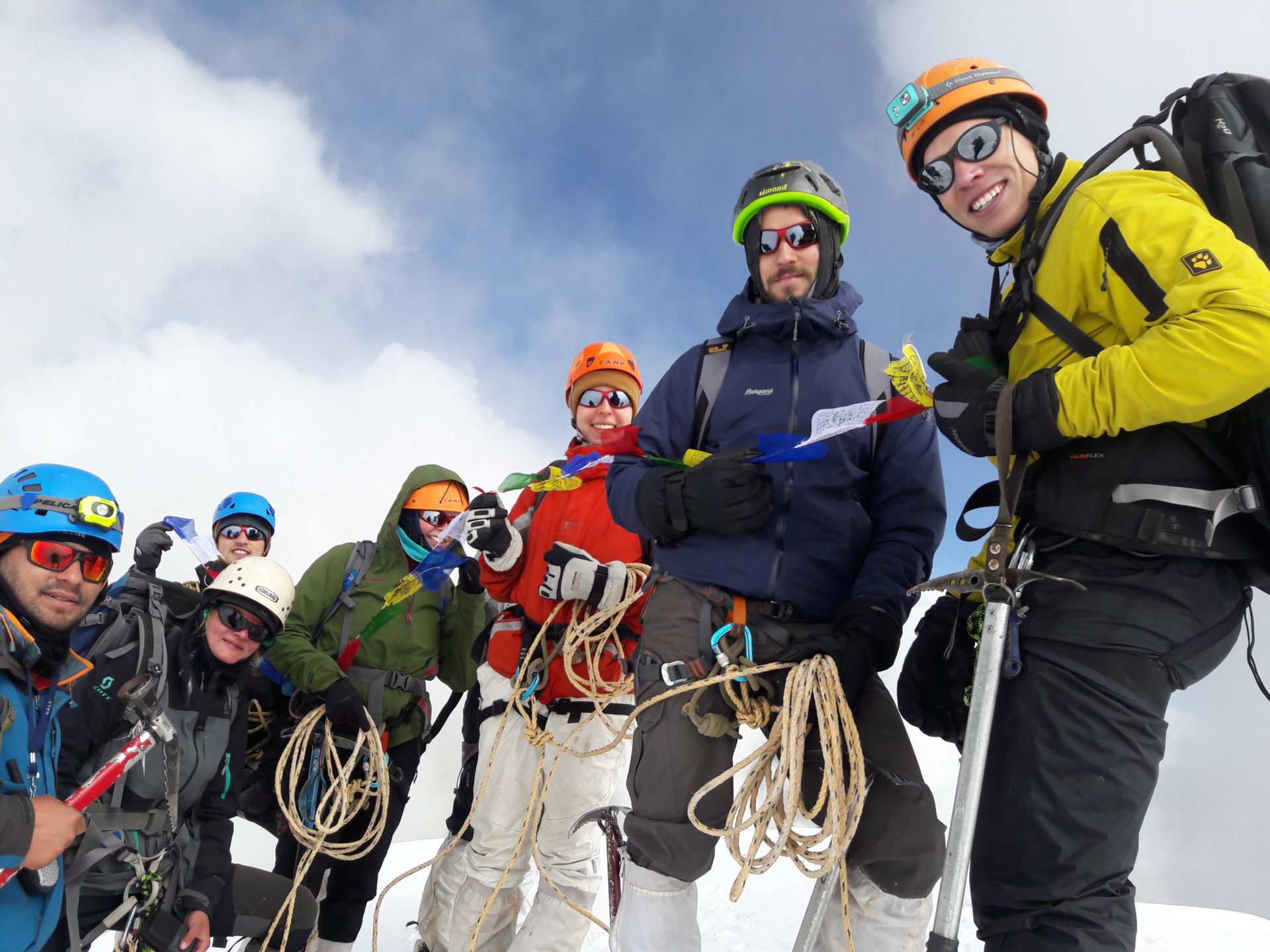
on top of the summit 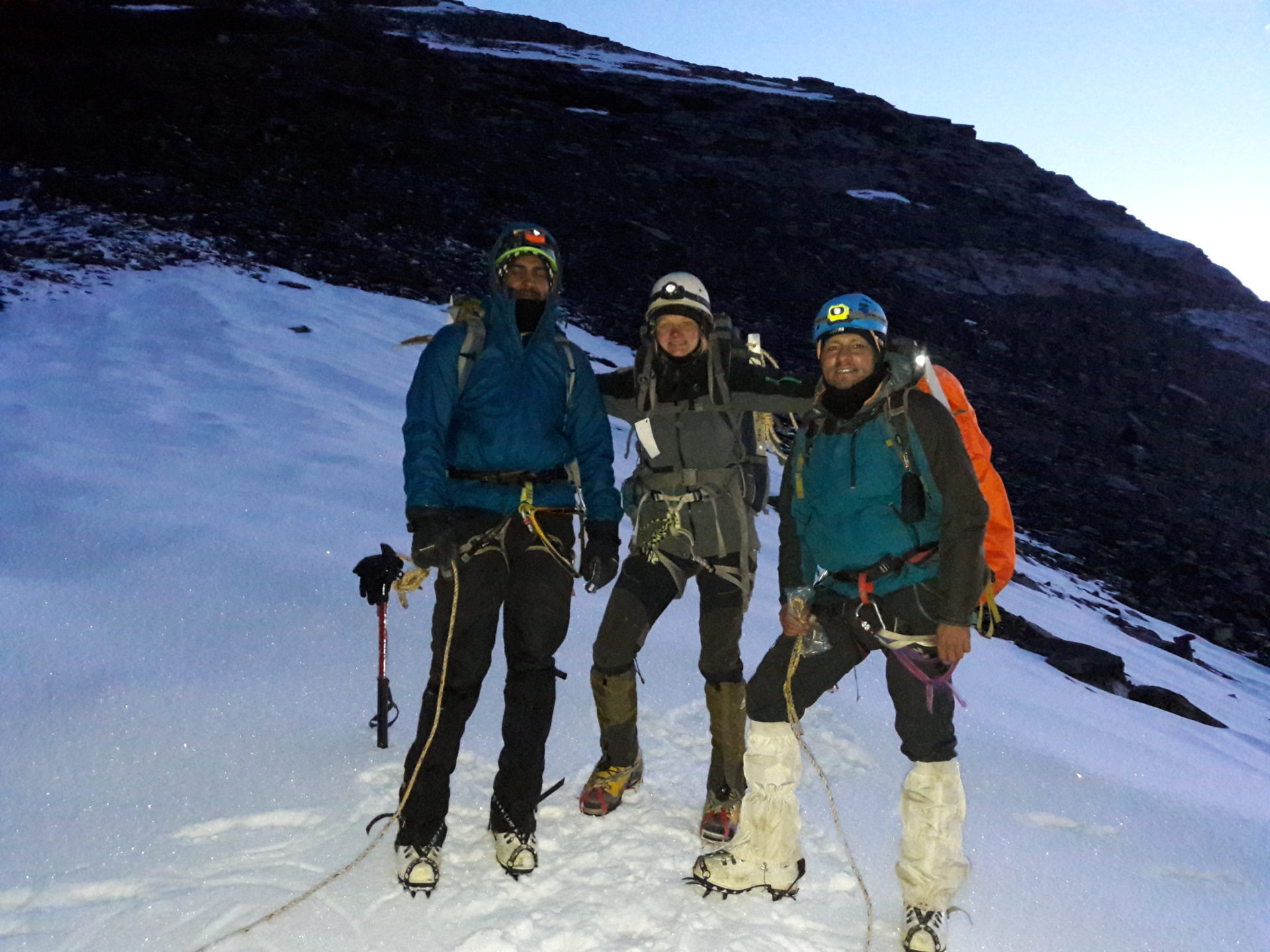
Guide Team 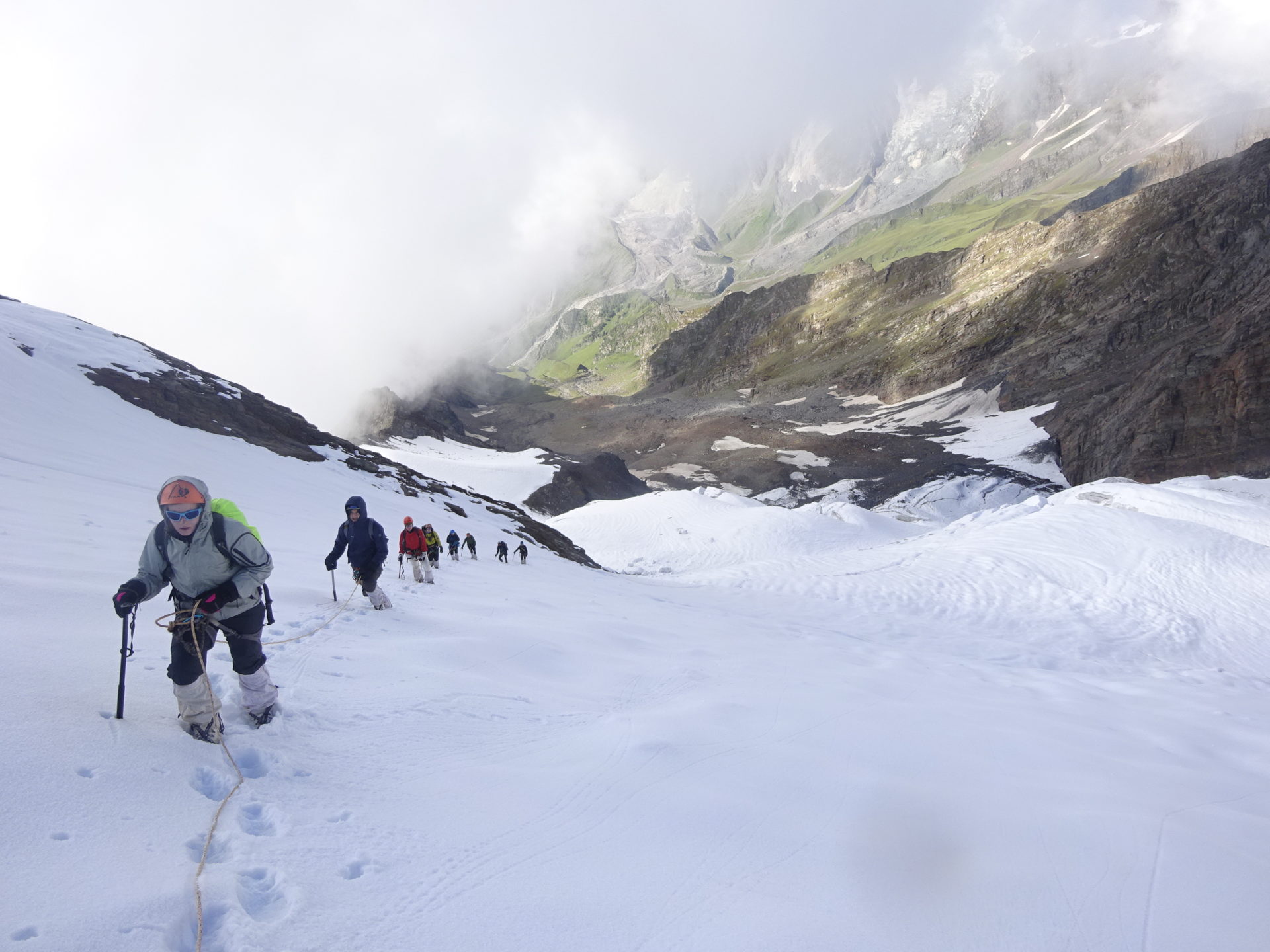
Friendship Peak Expedition 
Summit 
Friendship Peak Expedition 
almost there
Prices and Dates
This expedition is possible from April to October!
1 participant from 1800 € per person
2 participants from 1100 € per person
3-4 participants from 900 € per person
5-6 participants from 750 € per person
100 € for single room supplement, no one-man tent possible
Tour Info
Requirement
Mountaineering experiences are not a prerequisite. During the expedition, simple climbing techniques and the use of climbing equipment are taught. You should be physically and mentally fit for the ascent.
Information about our Expeditions in the Indian Himalaya with Chalo! Travels
- Mountain guide and team
On all our expeditions we have at least two trained local mountain guides with us. Our mountain guides have all completed all Indian mountaineering training and regularly lead expeditions and mountaineering courses. They have climbed the peaks several times and know the terrain excellently. All our mountain guides speak English.
In addition, there is a local team that will accompany us at least until the base camp. Which includes cook, helpers, horsemen with horses or Nepalese carriers, depending on the type of trek up to the base camp.
All our team members have been working with us for years, are very friendly, professional and always striving to give our guests a great experience and fulfill their wishes. Their English is rather mediocre or non-existent, but this is not necessarily a hindrance to communicating with them.
2. Summit
The summits have a different level of requirements from simple to difficult. Even with simple ascents of the summit, certain climbing techniques are required, as well as the use of equipment. On each of our tours we include days of practice to learn or repeat techniques and practice using crampons, ice picks, gaiters and using the rope. Thus, even inexperienced participants can participate in a summit expedition with a more difficult degree. The peaks are between 5000 and 6500 meters high.
The first days of the expeditions to the base camp are more like trekking days. The daily routes are between five and eight hours long (with breaks) and an average increase of around 500-800 metres of altitude is completed.
In between, rivers may have to be crossed. The paths are partly well developed, but sometimes also almost non-existent. On our trekking routes there are hardly any villages between, so we will take enough food for the whole tour.
From the base camp we will reduce our team and only travel with our guests and the mountain guides. While the rest of the team will stay in base camp. Meals will be easier, the daily routes can be up to 12 hours and especially on the day of the summit we start in the early morning hours around 2:00-3:00. From Base camp we will be on the road with all the equipment and depending on the situation, the mountaineering team will fix the ropes.
In all our expeditions we have planned 1-3 additional days in case the weather conditions are bad or we need more time for a good acclimatization. If we reach the summit without these additional days, our guests have a hotel in Manali at their disposal.
3. Daily routine till Base camp
7: 00 am Get up with tea
7:30-8:30 am Breakfast
7:00-9:30 am Dismantling of the camp
8:00- 9:30 am Start Trek
1:00 pm Lunch on the way
3:00-5:00 pm Arrival at the camp and camp construction
3:30-5:30 pm Snacks
7:00 pm Dinner
4. Altitude and altitude sickness
This is a very important topic that should not be underestimated, especially during our expeditions in the Indian Himalayas. At altitudes above 3500 m, our body has to slowly get used to the low air pressure, which also causes less oxygen to enter our lungs. The first signs of altitude sickness are headaches, which are accompanied by dizziness, nausea, insomnia and loss of appetite. It becomes problematic when water accumulates in the lungs and brain, and edema occurs. Then only the immediate descent to lower altitudes will help. To prepare for the heights on our treks, we will spend some nights in the same camp and do so-called “loadferrys”. This means that we transport some of our luggage to the next higher camp the day before and get back to the low camp. During the trek we will slowly ascend to acclimatize. If we notice that there are problems with our guests (each person is otherwise able to acclimatize, regardless of age, gender and fitness level), either the entire tour group or the participant with a team member descends/returns. In addition, it makes sense to take an emergency drug for altitude sickness. For this, it is best to inform yourself at the pharmacy or seek advice from the travel doctor. In addition, we will have oxygen with us for the emergency.
Our expeditions are organized in such a way that the complete tour from Delhi to Delhi is usually possible in two weeks. Nevertheless, we advise our guests to extend this period as far as possible in order to have more time for the actual acclimatization.
5. Luggage
On our expeditions from Basecamp, every expedition participant is responsible for carrying his or her personal clothes and belongings, as well as for his own equipment and some of the food and team equipment (ropes, materials, tents, cooking utensils). The total weight will be between 15 and 20 kg. Until base camp we will have the support of carriers and load horses. Here is the packing list for our expeditions.
6. Meals
During the trek to the base camp there will be a vegetarian full catering. Water is either boiled or we have a water filter with us.
Breakfast (daily selection):
Coffee/Tea
Oatmeal porridge/muesli/cornflakes/Indian porridge
Indian Breakfast/Toast/Eggs/Jam/Butter/Cheese/Honey/Chocolate Spread
Sliced fruit/vegetables
Lunch (mostly lunchbox), sometimes warm in the camp:
Sandwiches/Indian (rice, chapati, vegetables)/eggs/potatoes
Juices
Chocolate
Fruit
Snacks:
Tea/coffee
Cookies
French fries/Indian snacks
Soup
Dinner (depending on the length of the trek, a mix of Indian/Chinese/Continental):
Vegetable dish
Lentil dish
Rice/noodles
Chapati
Salad
Dessert
7. From Base camp, meals are more simple with carbohydrate-rich food
Breakfast:
Tea, Coffee
Oatmeal, muesli, rice
Lunch (self-carried and divided for all days):
Dried fruits and nuts
Chocolate bar/muesli bar
Boiled potatoes/eggs
Cheese
Fruit
Snacks:
Biscuits, Soup, Instant Noodles, Tea/Coffee
Dinner:
Noodles/rice/instant dishes/couscous
8. Accommodation and Camp
We have light 2-3 man tents, sleeping bags with comfort zone up to -5°C, as well as good mats. It is recommended to bring personal indoor sleeping bags.
In addition, we have a spacious dining tent with tables and chairs, and a kitchen tent for the team up to base camp. For expeditions of up to 4 people, the kitchen tent can also act as a dining tent at the same time.
From Base camp we will not have a kitchen and dining tent.
9. Temperatures
In the Himalayas, temperatures fluctuate widely. While it can get warm up to 25°C during the day and the sun is not only warming but also very intense (sun protection is a must), it can also cool down at night well below the minus degrees with temperatures down to -10° C, especially in the months end of September and October, as well as in June and at altitudes from 4500 meters. There may also be weather changes with snow and storms. Bad weather can always be a hindrance for a successful climb.
-
5
India Close up
23 days across India and an incredible expedition to Friendship Peak were an incredible experience and I can only recommend it! :) Sarah is a super competitive person and has organized the trip fantastically. Above all, the trip is not to be compared to a "touri group tour", but is individual and I was allowed to get to know India together with 6 (new) friends. If you want to get to know different places, the Indian culture and history with all its customs, the food culture and the inhabitants with different religions, Chalo! Travels is perfect for you.
